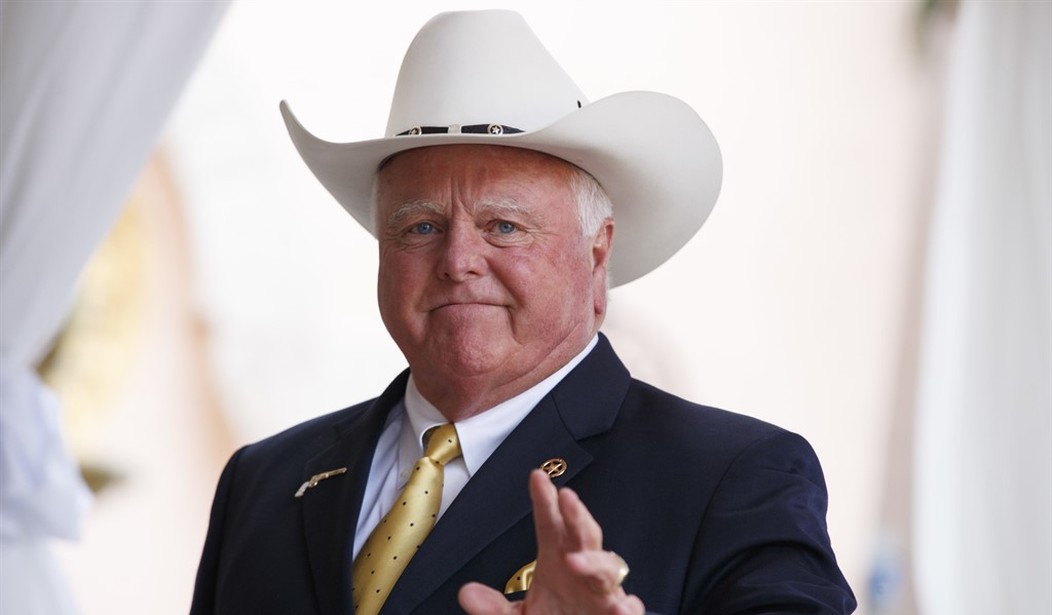Can a dress code be transphobic? That’s the claim being made by opponents of a dress code put forth by Sid Miller, Texas Agriculture Commissioner. The department’s Dress Code and Grooming Policy requires employees to dress in a manner “consistent with their biological gender.”
The memo went out on April 13 from the Department of Agriculture. It welcomes “Western wear” but requires employees to dress according to“biological gender. This requirement is for all employees, including interns and contract workers. There is an exception for specialized service, activity, or events being conducted. This includes “fieldwork in agriculture and consumer protection, export pens, facilities-related labor and other similar types of specialized assignments or special events that, as a practical matter, call for a departure from these standards.”
The first question I had was about the specifics of clothing that is and is not acceptable. The memo explains two categories – Business Attire and Business Casual. Business attire includes traditional business wear which includes Western business attire. For men, this includes long-sleeved dress shirts, ties, and sports coats worn with trousers and dress shoes or boots. For women, the guidelines require “tailored pantsuits, businesslike dresses, coordinated dressy separates worn with or without a blazer, and conservative, closed-toe shoes or boots.”
Frankly, that sounds like an old-school office dress code. Conservative businesses and institutions expect this level of business attire to maintain a professional appearance. Western apparel can look professional in a tasteful way and it is not unusual that this is included as acceptable. Sid Miller wears a Western hat and boots as his everyday business attire. It isn’t unusual for an agricultural commissioner, especially in Texas. I was mostly curious about what women are expected to wear. I don’t see anything too restrictive in the wording of the guidelines. It’s pretty much the same requirements that were around back in the day when I was an office worker.
Business Casual is where boundaries can get blurred for businesses. For this category, Sid Miller gets specific, which is good.
For less formal occasions, business casual attire, which is less formal than traditional business attire, but is still intended to give a professional and businesslike impression, may be appropriate. Business casual is the appropriate minimum attire for day-to-day office assignments where in-person interaction is primarily with fellow coworkers and not with the general public or other government officials.
Western attire is included in the business casual category and is encouraged. Jeans may not be tattered or torn. Cowboy hats must reflect favorably on the professionalism of the agency and in no circumstance be unclean or tattered.
The following are some examples of business casual attire:
Shirts with collars, business casual crewneck or V-neck shirts, blouses, and golf and polo shirts.
Examples of inappropriate shirts include T-shirts, shirts with inappropriate slogans, tank tops, muscle
shirts, camouflage, and crop tops.
Pants: Casual slacks and trousers and jeans without holes, frays, etc. Examples of inappropriate pants include shorts, camouflage, and baggy or sagging pants or pants worn below the waist or hip line.
Footwear: Casual slip-on or tie shoes, Western boots, and clean athletic shoes. Examples of inappropriate footwear include flip-flops, slippers, slides and crocs.
Are you seeing any examples of transphobia so far? I’m not. Maybe we’ve reached the point that any traditional norms are considered transphobic. These guidelines seem to be some pretty basic guidance. Don’t wear your pajamas to work. Don’t wear your hunting clothes to work or tank tops. None of this is transphobic. The problem with the transgender agenda is that it is incorporated into everything, whether it is applicable or not. For example, this memo doesn’t tell women to only wear dresses, no pants. Does the ACLU anticipate male employees at the Department of Agriculture wanting to wear dresses on the job?
This is primarily an attack on current legislation being moved through the Texas Legislature that addresses drag queen shows for young children and the use of the phrase “biological gender.” The liberal Texas Observer explains the problem with that term.
Sex and gender are distinct. Sex denotes one’s arrangement of chromosomes, reproductive anatomy, and other organs. While sex is not binary—as evinced by the existence of intersex people and variation in the biological expression of human sex characterisitcs—it is less fluid than gender, a social construct expressed and reinforced by norms, behaviors, and roles assigned to people based on their perceived sex. Transgender, nonbinary, and gender nonconforming people have a gender identity that differs from the one assigned at birth.
In other words, sex is biological, but gender isn’t.
Concern by critics points to employees who complain they can’t express themselves freely through their clothing. That’s how it is in office settings, though, for all areas of business. The same is true out in the field for some workers. For example, women aren’t expected to wear dresses and heels while in the field, which could be a literal field.
One employee expressed his or her concerns. They spoke anonymously.
The TDA employee expressed fear for queer coworkers, or anyone who speaks out against the new policy. They confirmed that they have met LGBTQ+ workers throughout the department. The employee told us they were attracted to their particular division because of its diversity. “We have women, people of color in leadership, and the staff is just about as diverse as it can be.”
“We should not allow this to be normalized,” they said, expressing fear that the new directive would also rekindle the debate over public bathrooms. “It definitely feels like it threatens the safety of anyone who doesn’t conform to the binary dress code.”
Conflating bathroom wars with dress codes is a stretch. Critics are just looking for reasons to object to a dress code. When you look at it, it’s a lot like your mother used to tell you about how to look when you showed up for work. Dress appropriately and wear clean clothes. Violations of the policy can result in the employee being asked to go home and change clothes. If the employee persists in violating the dress code, it could lead to termination.
The ACLU of Texas has an objection. Shocker, I know.
Brian Klosterboer, an attorney with the ACLU of Texas, said this dress code provision violates Title VII — which bans employment discrimination based on sexual orientation or gender identity — as well as the First Amendment’s right to free expression and the Equal Protection Clause.
“State agencies should be focused on doing their jobs and not discriminating against their own employees and trying to make political statements through their agency regulations,” he said. “There is no important governmental interest that this can meet.”
It will be interesting to see if the ACLU’s objection goes anywhere. All businesses and agencies have dress codes, whether they are printed up and distributed to employees or they are unspoken. I don’t expect to see a bank teller in pajama bottoms and slippers. My doctor doesn’t wear tank tops and shorts in the office. This is mostly common sense. Not everything is about transgenderism, as much as some would like us to believe that.








Join the conversation as a VIP Member